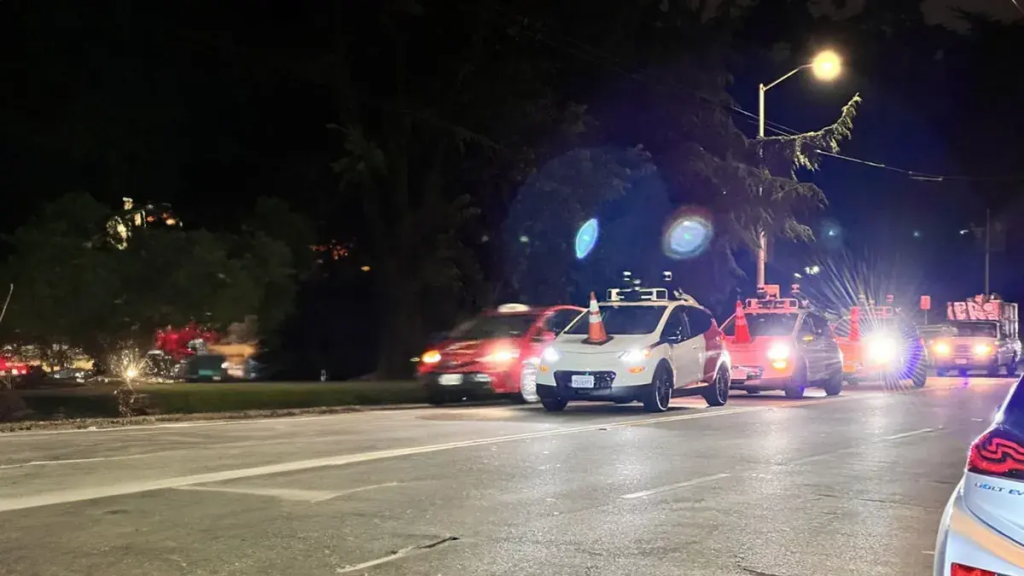Protests have erupted in San Francisco against autonomous vehicle companies like Waymo and Cruise, with citizens resorting to an unconventional form of demonstration. They have taken to placing traffic cones on the hoods of these self-driving vehicles, sparking a wave of viral videos on Twitter and TikTok.
Waymo, a major player in the self-driving vehicle industry, expressed its disapproval of the protesters’ actions, labeling it as vandalism and emphasizing the importance of safe and respectful behavior on the roads. The company stated that understanding how autonomous vehicles operate behind the protest is incorrect, and it intends to notify law enforcement of any unwanted or unsafe interference with their vehicles on public roadways.

Cruise, another robotaxi operator in San Francisco, defended its safety record and highlighted its fleet’s positive contributions to the community. The company pointed out that its vehicles provide free rides to late-night service workers, deliver meals to food insecure individuals, and recover food waste from local businesses. Cruise argued that intentionally obstructing their vehicles hinders these efforts and risks creating traffic congestion for residents.
The introduction of self-driving vehicles in San Francisco has sparked controversy among residents. While companies behind these services claim they are safe, critics argue that the public is being turned into involuntary beta testers. Waymo, for instance, faced criticism for a blog post by its chief safety officer that highlighted the superior driving capabilities of their vehicles compared to humans while conveniently omitting a dog fatality involving a Waymo vehicle. This omission raised concerns about accountability and justice in cases where autonomous vehicles cause harm.

Notably, the protest against robotaxis has been localized to San Francisco, with no similar activism reported in other major testing markets such as Phoenix and Austin. Safe Street Rebel has called on San Francisco residents to attend a meeting held by the California Public Utilities Commission (CPUC) on July 13. The CPUC aims to gather public input before making decisions on expanding regulations that would allow Cruise and Waymo to deploy autonomous vehicles on city streets, specifically regarding fare charging by driverless car companies.
The “Week of Cone” campaign by Safe Street Rebel aims to raise awareness and hold the robotaxi companies accountable for accidents caused by their vehicles. The protesters argue that these companies promise to reduce traffic and collisions but end up obstructing buses, emergency vehicles, and regular traffic instead. Furthermore, the group is frustrated by the likelihood of these companies sharing video footage with the police, which has only further fueled their ire.

While the guerrilla tactics employed by Safe Street Rebel have generated attention, it remains to be seen whether their actions will significantly impact the CPUC’s decision-making process. The outcome of the meeting and the subsequent regulations will determine the extent of accountability imposed on autonomous vehicle companies in San Francisco.


